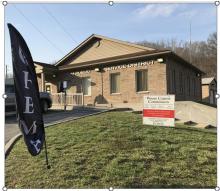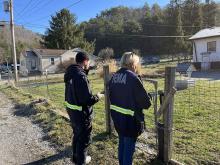News, Media & Events: West Virginia
Preparedness Tips
A few inches of water in a 1,000-square foot home could cost more than $10,000 in repairs and replacement of personal possessions. Homeowner’s insurance doesn’t cover most floods. Learn more about flood insurance.
Press Releases and Fact Sheets
CHARLESTON, W.Va. – The FEMA-West Virginia Disaster Recovery Center in Raleigh County is closing permanently Friday, May 2, 2025, at 6 p.m.
CHARLESTON, W.Va. – Today is the last day for West Virginia residents to apply for FEMA Assistance if they had damages from the Feb. 15-18, 2025, floods. THE DEADLINE TO APPLY IS 11:59 P.M. TODAY, APRIL 28, 2025.
The deadline for West Virginians to apply for FEMA assistance is this Monday, April 28. If you are a resident of Logan, McDowell, Mercer, Mingo, Raleigh, Wayne, or Wyoming counties and had damage to your home or personal property due to the February storms, FEMA encourages you to submit an application by Monday.
If you have already applied for assistance, encourage your friends, family, and neighbors to apply. If you have questions about your application or a FEMA determi







